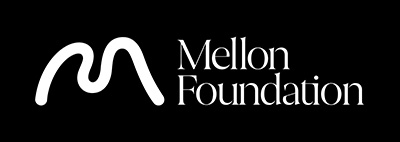Wiki Education has exciting news to ring in the New Year! We are thrilled to announce a three-year partnership with the Mellon Foundation’s Higher Learning program that will elevate the knowledge of 16,000 higher education students studying the humanities to represent more complete and accurate narratives of the human experience on Wikipedia. Beginning this year, this partnership will amplify our Wikipedia Student Program’s Knowledge Equity initiative that brings to light stories and perspectives that are often missing, misrepresented, or have little information written about them. This project will be the biggest social-justice campaign for the humanities in Wikipedia’s history.
 “Our world is full of rich human stories and horizon-expanding knowledge that should be accessible to all, but that have been left out, suppressed, or otherwise hidden from public view,” says Maria Sachiko Cecire, Program Officer in Higher Learning at the Mellon Foundation. “We are delighted to partner with Wiki Education in this ambitious social justice campaign to bring more information about the full range of human creation and expression to the largest and most consulted reference work on the planet. We are especially thrilled that the significant research and writing skills of humanities faculty and students at colleges and universities across the country will power this essential work.”
“Our world is full of rich human stories and horizon-expanding knowledge that should be accessible to all, but that have been left out, suppressed, or otherwise hidden from public view,” says Maria Sachiko Cecire, Program Officer in Higher Learning at the Mellon Foundation. “We are delighted to partner with Wiki Education in this ambitious social justice campaign to bring more information about the full range of human creation and expression to the largest and most consulted reference work on the planet. We are especially thrilled that the significant research and writing skills of humanities faculty and students at colleges and universities across the country will power this essential work.”
We define knowledge equity content as that which pertains to the narratives of women and other non-male gender identities, those with disabilities, LGBTQ+ people, people of color, and others whose perspectives have been historically marginalized by dominant groups. Indeed, the dominant group of Wikipedia contributors are currently well-educated white men from North America and Europe. Featured Articles on Wikipedia’s landing page are largely authored by this group and often lacking a social justice lens.
Wikipedia editors, including new ones, tend to stick with the way things have always been written if not guided to where the gaps exist. Wiki Education’s resources and support will empower students to add content about knowledge equity, while still adhering to Wikipedia’s rigorous rules on sourcing, writing style, and layout.
Students will specifically focus on re-shaping the landscape of humanities articles pertaining to academic disciplines such as anthropology; archaeology; arts; classics; cultural studies; disability studies; ethics; gender and sexuality studies; history (including history of science); jurisprudence; languages and literature; music; philosophy; racial and ethnic studies; religion; sociology, as well as interdisciplinary topics related to an equitable human experience, like environmental justice.
By the end of 2026, we expect more than 200 million people will have viewed these articles and increased their understanding of communities, cultures, histories, and notable figures that have not received enough media attention elsewhere.
“I’m excited about our partnership with the Mellon Foundation,” says Frank Schulenburg, Executive Director of Wiki Education. “This initiative will significantly impact the students involved and the countless Wikipedia users who will gain free access to representative and trustworthy information. Our Knowledge Equity initiative is a key aspect of our mission, and I’m especially pleased that we’re starting a large campaign to enhance content in the Humanities.”
This project will catalyze our ongoing Knowledge Equity campaign by significantly growing participation among new humanities faculty and supporting Wikipedia use in their courses. Wiki Education will activate its existing network of academic associations and partners and identify new opportunities to collaborate. Our work will be guided by a newly established Humanities and Social Justice Advisory Committee, composed of seven exemplary humanities scholars who have taught with Wikipedia through our Wikipedia Student Program with a knowledge equity lens. Our program team will onboard and support 800 humanities courses that add over 11 million words, powerfully diversifying who and what you see on Wikipedia.
Contact Kathleen Crowley, Director of Donor Relations, at kathleen@wikiedu.org if you’re interested in growing this impact.
About The Andrew W. Mellon Foundation
The Andrew W. Mellon Foundation is the nation’s largest supporter of the arts and humanities. Since 1969, the Foundation has been guided by its core belief that the humanities and arts are essential to human understanding. The Foundation believes that the arts and humanities are where we express our complex humanity, and that everyone deserves the beauty, transcendence, and freedom that can be found there. Through our grants, we seek to build just communities enriched by meaning and empowered by critical thinking, where ideas and imagination can thrive. Learn more at mellon.org
About Wiki Education
Wiki Education is a small, high-impact nonprofit organization systematically building and expanding the content on the English Wikipedia. Our goal is to represent the sum of all human knowledge by making Wikipedia more accurate, representative, and complete through our Wikipedia Student Program and Scholars & Scientists Program. These programs have trained students in higher education classrooms across the United States and Canada and subject matter experts from around the world how to add their knowledge to the most referenced online encyclopedia. We bring 19% of all new contributors to Wikipedia, who have written over hundred thousand articles viewed hundreds of millions of times.
Mellon Foundation logo used courtesy of Mellon Foundation, all rights reserved.
